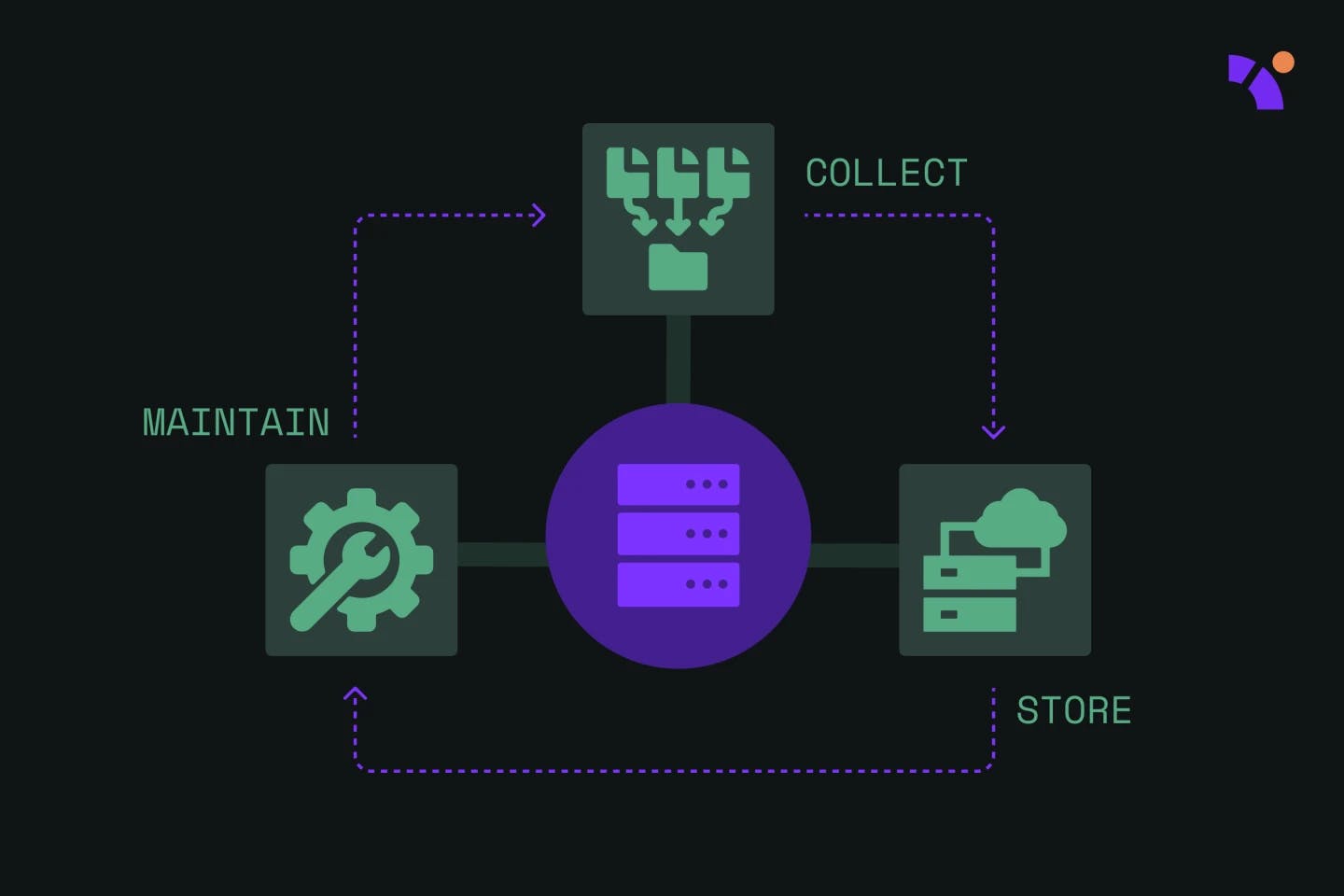As someone who builds data pipelines, have you ever struggled to access the right data at the right time? Have you dealt with multiple data silos or struggled with inconsistent data quality? If so, it may be time to consider centralizing your data.
Without a centralized data system, data silos, discrepancies, and security issues arise, making it difficult for organizations to derive accurate insights and make informed decisions.
This article delves into the importance of data centralization and the benefits it can bring to your organization.
What is data centralization?
Data centralization is a data management practice that consists of collecting, storing, and maintaining data in a single location instead of having it segmented in silos across multiple platforms and vendors.

The goal of data centralization is to provide quick and easy data access and enable a 360-degree view of the business, product, and customers for relevant stakeholders so that they can perform deep and holistic analysis.
Why is data centralization important?
Data centralization is essential for data teams to gain ownership and control of their data and utilize it effectively to uncover valuable insights. By centralizing data, organizations can improve their reporting and decision-making by leveraging a more comprehensive view of their business and taking the required steps to enhance their overall performance.
“Once the business data has been centralized and integrated, the value of the database is greater than the sum of the preexisting parts.” – Larry Ellison, Founder of Oracle
For instance, consider a large ecommerce company that collects and manages sales data from various sources such as Shopify, Salesforce, Google Analytics, and Google Ads. Without centralization, marketing and sales teams would have their own systems for recording and managing this data, resulting in a siloed approach that would make it difficult to get an overall view of the company’s performance. However, by implementing a centralized system, such as a data warehouse and a data platform, the ecommerce business would be able to collect, store, and integrate data from all its sources in a single place.
Now that we’ve shown the big picture of why data centralization is important, let’s dig a little deeper into each of the following components:
- Breaking down data silos
- Building a single source of truth for improved data analytics
- Improving cross-functional collaboration and shareability
- Enhancing data security and governance
Breaking down data silos
In companies without an advanced data infrastructure, teams tend to collect, store, and sometimes analyze their own data either in the application they’re using or in spreadsheets. This leads to the problem of data silos. Data silos make the data inaccessible to colleagues from other teams, limiting data sharing and making it difficult to get a transparent overview of the organization’s data.
In a recent Forrester report, 72% of firms believed that managing multiple CRM systems across geographical and technological silos is moderately to extremely challenging.
Data silos can also manifest when multiple data tools (like a modern data stack) are used at the same time without all team members having access to them or the necessary technical expertise to use them.
Having one centralized data tool reduces the risk of inconsistencies and inaccuracies.
Building a single source of truth for improved data analytics
When data is stored in multiple locations, organizations often end up using incomplete data for analytics, which can distort results and impact decision-making.
With a one-stop shop for all relevant data, organizations can achieve a single source of truth (SSoT) and establish a foundation for more comprehensive and meaningful data analytics. Such analytics might include exploring industry trends, predicting market changes, and forecasting future demand based on data from all sides of the business (sales, marketing, customer success, product, etc.).
Improving cross-functional collaboration and shareability
When data is stored in separate systems, a complex network of data is created, which can hinder collaboration. According to a recent report by Zendesk, only 22% of business leaders believe their teams shared data without problems.
Data centralization enables better cross-functional shareability and collaboration as teams have access to the same pool of data, which ensures that everyone is on the same page regarding metrics, data logic, naming conventions, and calculations. That way, for example, an organization’s product and customer success teams can build one consistent and shared customer engagement dashboard, ingesting their individual data sources into a unified interface.
Enhancing data security and governance
Good data governance helps organizations to understand how and where they are using their data, as well as who can change the path and shape of that data. An effective data governance framework is required to systematically address data quality and security concerns and ensure compliance with legal and organizational standards.
With centralized data, organizations immediately solve the problem of understanding where they are using their data. Furthermore, data governance features (such as data monitoring, data lineage and catalogs, user permissions, and role-based access controls) are far easier to implement on centralized data because there’s no need to manage integrations and relationships between different data providers.
Centralize your data with Y42
Centralizing your data is critical for data-driven decision-making. It can provide numerous benefits, such as eliminating data silos, improving data governance and security practices, enhancing collaboration, and creating a reliable single source of truth.
With a well-designed data centralization strategy and a modern data platform like Y42, your organization can ingest all its data sources into a single UI, promoting a data-oriented culture, increasing operational efficiency, and ultimately driving business growth.
Y42’s fully managed DataOps Cloud lets you centralize data from all your data sources to your data warehouse in just a few quick steps. Here are some of the key data centralization features you will find in Y42:
- 150+ integrations with multiple SaaS tools, databases, and files
- Real-time monitoring and notifications
- Automated imports
- Scalable and continuous integrations
Category
In this article
Share this article

